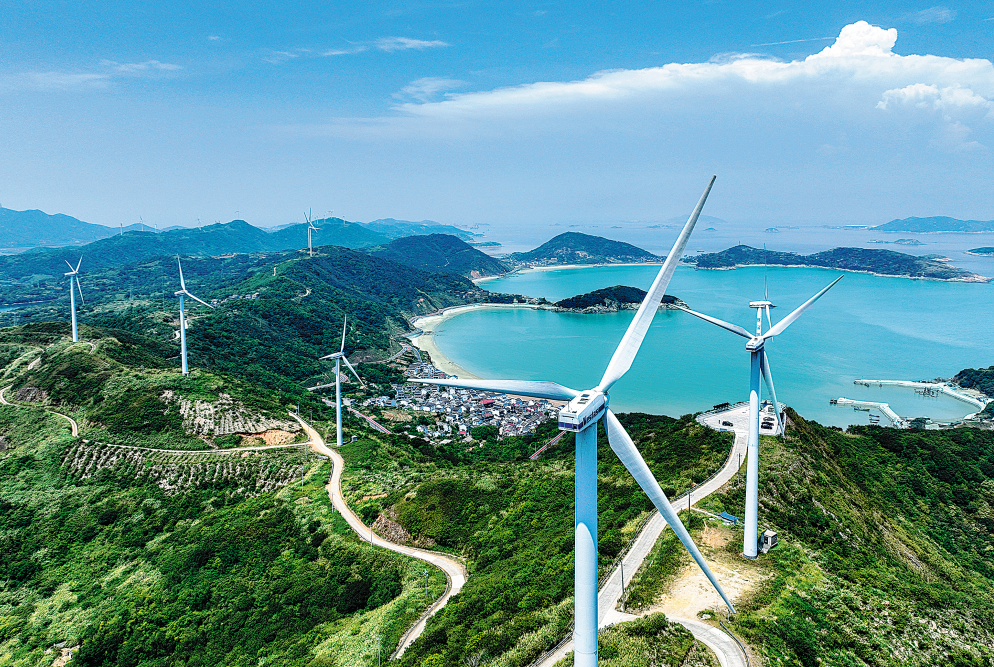Emerging technologies to hasten renewable power revolution
By ZHENG XIN | China Daily | Updated: 2022-08-18 09:25

Electricity generation remains nation's major source of CO2 emissions
Digital technology will play an important role in Chinese power generation enterprises' transition to a low carbon world by enabling emissions reductions, according to a recently released report.
Digitalization tools, including the internet of things, 5G, smart grids and distributed energy resources, along with the electrification of end uses, will play a vital role in the power sector's structural change from a system based on fossil fuel-powered generation toward one based on variable renewable energy modalities, according to a white paper on the net-zero digital transformation of Chinese power generation enterprises released in early August by global consultancy Accenture and Envision Group.
The electric power sector is China's major source of carbon emissions, and plays a critical role in implementing carbon-neutral strategies. Creating a new power system with renewable energy as its base has emerged as the path for the industry to achieve carbon neutrality as China plans to peak carbon emissions by 2030 and reach carbon neutrality by 2060, said the report.
Technological advances will further lift the efficiency of the energy system in China while reducing energy emissions intensity, a sector with a lot of potential to tap, it said.
For example, weather forecasts based on digital solutions can help predict power generation output using the amount of sunshine and wind resources, which can ensure a more steady grid network operation, while intelligent forecasts and predictive maintenance can also optimize power generators' operational and maintenance costs, it said.
According to the report, as China's power generation industry-one of the largest sources of greenhouse gas emissions-shifts from a system based on fossil fuels, including oil, gas and coal, to one dominated by clean wind, solar and hydropower, growth of variable renewables and decentralized power sources presents technical challenges for power grids to maintain a state of operational balance which can compromise electricity security.
Ensuring electricity security means that these technical challenges are addressed through appropriate innovative solutions in system planning, operations and services.
While electrification will increase demand for electricity, technology and digitalization will enable a more active role for consumers as part of a decentralized system, it said.
Kenneth Cheng, managing director at Accenture, said Chinese utility companies and power companies have built up sufficient experience for digital solutions in the past few years, and the 14th Five-Year Plan period (2021-25) will witness increasing adoption of data to further facilitate the country's power sector transition.
"Digitalization is a major driver of the country's carbon reduction and energy transition, with utility and power companies in the country having a lot of potential to tap," Cheng said.
"Under China's 14th Five-Year Plan, innovative technologies are expected to generate significant value through the power industry's low-carbon transformation."
























